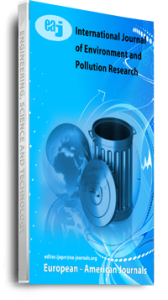Environmental degradation can have negative consequences, both expressly and impliedly, for the actual attainment of human rights. For instance, the rights to life and human dignity are only achievable where people can have access to an ecologically balanced environment devoid of degradation. Similarly, the enjoyment of other fundamental rights like food, freedom of worship, good working environment, education and health can also be affected by an unhealthy or unwholesome environment. In recognition of the vital connection between human rights and the environment, many global instruments and national Constitutions have recognised the right to a healthy environment. The 1999 Constitution of the Federal Republic of Nigeria is one of such national Constitutions that acknowledge the need to safeguard the environment. The article argues however that the non-justiciable provision of the Nigerian Constitution constitutes a serious threat to citizen’s enjoyment of the right to a clean and healthy environment.
Keywords: Constitutionalism, Ecologically Balanced Environment, Environmental Right, Human Right, Sustainable Development

